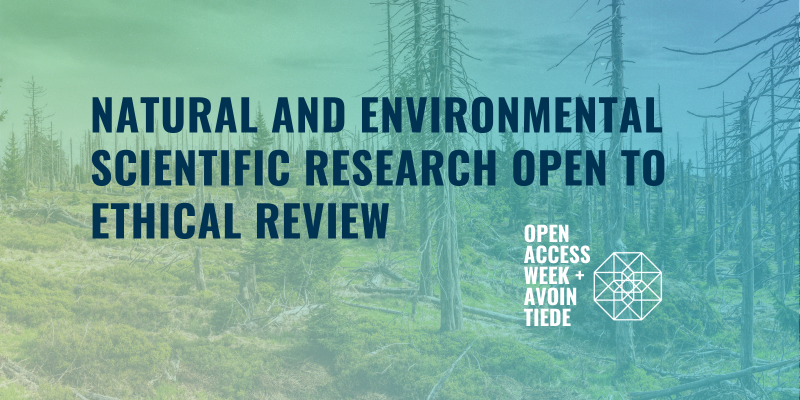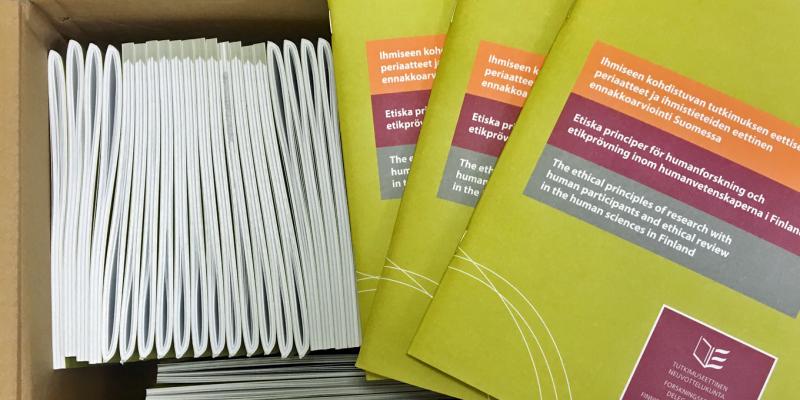Who should be asked to give consent when research concerns children or young people? How to ensure that a child knows what consent involves?
“Naturally, if a parent says no, you do not carry out the research, but if the reason for no parental permission is that the parent was uncontactable, banning the research does not seem to make sense.”
Researchers studying childhood and youth often describe situations in which different bodies heap obstacles in the path of their research in the name of research ethics. The quote above describes a situation in which the researcher wished to interview children whose ties to their parents could have been cut at a very young age. Because permission was not granted to interview the children without the consent of a parent or guardian, the research was unable to be carried out in the manner intended. At the same time, conducting the research without the experiences of these children meant that important information was lost.
Ethical issues are often felt to be a burden in research into childhood and youth. They often amass to become a load that threatens to derail the entire project.
Ethical issues are often felt to be a burden in research into childhood and youth.
As in all human sciences research, research concerning children and young people must be ethically sustainable. It must respect the research subject’s right of self-determination, avoid causing harm and safeguard the privacy and data protection of research subjects. The age, developmental level and position in society of children and young people pose additional special conditions for researchers.
A child or young person is not necessarily capable of evaluating the meaning of the research or their own role in it for themselves. Children and young people are not treated as competent citizens in many ways and are sometimes placed in an extremely subordinate position compared to adults.
This text examines the ethics related to research into children and young people via the concept of consent. Who should be asked for consent to research? When is the consent of the parent or guardian required and when is the consent of the child sufficient? And how to ensure that the child knows what consent involves?
Is the guardian's consent necessary?
According to the law, a minor child is the responsibility of their parents or other guardians and they make decisions on their behalf. The Finnish Act on Child Custody and Right of Access states that before making a decision concerning a child’s personal matter, the person who has custody must discuss the matter with the child and give due consideration to the opinion and wishes of the child.
When conducting research into newborn babies or seriously disabled children, for example, the consent of the guardian enables the child’s participation in the research. In these circumstances, the researcher must trust that the guardian is capable of best determining the best for the child. The consent of the guardian is generally requested for research conducted into children under the age of 15 in particular.
In his article on preliminary ethical reviews on research involving minors published in the book Lasten ja nuorten tutkimuksen etiikka (Research Ethics in Studies Involving Children and Young People), Klaus Mäkelä writes that there are, however, situations in which there is no reason to request the permission of guardians. When the research does not harm the child and the child themselves is capable of forming an opinion, the permission of a guardian is not necessary. Nor is there reason to ask permission in cases where asking permission would be contrary to the child’s interests.
There are situations in which there is no reason to request the permission of guardians.
There are phenomena that would not be studied at all if consent was required. For example, it was decided to carry out extensive child victim research in Finland studying experiences of child and youth violence and crime without the consent of the guardians, as otherwise the guardians would have been able to prevent children with a large amount of experience of being a victim from taking part in the research.
I myself justified interviews with children under the age of 15 without asking the consent of their guardians in a project in which the researcher was participating in trips organised by children’s homes to study the experiences of the children and adults involved. The project was approved by the Ethics Committee of Youth and Childhood Studies and passed the permit processes of nine municipalities and towns on the same grounds. I justified the lack of necessity for guardian consent by citing the Finnish Constitution, the Convention on the Rights of the Child, the Act on the Status and Rights of Social Welfare Clients and the Act on the Status and Rights of Patients.
These statutes state that a child is to be treated as an equal individual and should be able to influence matters affecting themselves in accordance with their level of development. A child who is capable of forming their own views shall be assured the right to express those views freely in all matters affecting the child. Furthermore, the child has the right to freedom of expression, including the freedom to seek, receive and impart information and ideas. From the point of view of upholding the rights of children and young people, it is important that they are able to participate in research should they wish, without anyone preventing this.
In addition to the above factors, social and health care legislation also contains two provisions that draw attention to the right of minors not to give information concerning themselves to their parent/guardian in situations in which they are capable due to their age and developmental level. Even if the research is not linked to social and health care, participation in research can be examined from this perspective. There are situations, namely, in which the participation of the child in research could reveal to their guardian factors the disclosure of which would be contrary to the child’s interests.
How is the child's consent interpreted?
The most important principles of research ethics are that the research subjects must be able to decide for themselves whether they want to be part of the research study. In order to make this kind of decision, the subject must have sufficient information about the purpose of the research, its consequences and about management of the data, for example. Furthermore, the subject must have the mental capacity required in order to make this decision.
In childhood research, it is necessary to weigh up how a small child can be considered to form an opinion on such a complex issue. In research conducted on children, consent is usually requested from children themselves even when they are very young.
However, how can it be guaranteed that the children and young people understand what they are consenting to? The Ethics Committee of Youth and Childhood Studies has mainly focused attention on the language and concepts used in information material and consent forms. Conveying the issues involved in a comprehensible form is not easy. Common concepts such as “confidentiality” or “archive” may be utterly alien to a child. The Finnish National Board on Research Integrity (TENK) guidelines on ethical review in the human sciences (“The ethical principles of research with human participants and ethical review in the human sciences in Finland”) consider oral consent sufficient, but information material and consent forms are generally provided in writing. The various forms to complete often become so complicated that ultimately, they risk putting young participants off.
In practice, researchers have observed that consent requires spending time with the children and young people, familiarisation on both sides and building trust. When conducting research on children and young people, consent may thus require more than a name on a piece of paper.
Towards ethically sustainable research
International conventions and legislation enable children and young people to make their own decision to participate in research in a comparatively large number of cases. However, this does not necessarily fulfil the criteria imposed by funding bodies, authorities and international publishers. At the same time, there are countless research ethics guidelines that vary by country and research subject.
A researcher can never escape difficult questions, as ethical solutions cannot be patented to suit all circumstances. This is precisely the factor that irritates researchers.
I have one simple piece of advice to researchers on resolving ethical questions. Approach them as if you would approach questions in human sciences research – with curiosity and a readiness to spend time finding the answers.
I have one simple piece of advice to researchers on resolving ethical questions. Approach them as if you would approach questions in human sciences research – with curiosity and a readiness to spend time finding the answers. Background literature is useful; it is worth familiarising yourself with legislation and different guidelines and engaging in discussion with the scientific community.
In research on children and young people, an ethical approach also requires getting close to the research subject and seeing the world from the perspective of the child, the young person and their parents or guardians. In combination, these factors help researchers to find ethically sustainable solutions. The same recipe can produce high-quality, responsible science.
Elina Pekkarinen is Secretary of the Ethics Committee of Youth and Childhood Studies and Research manager (temp.) of the Finnish Youth Research Network
Updated with TENK's new guidelines 16.9.2019.
Further information:
Pekkarinen, Elina (2011). Lastensuojelun tieto ja tutkimus – asiantuntijoiden näkökulma. Helsinki: Finnish Youth Research Network & Finnish Youth Research Society & Finnish Society for Childhood Studies & Central Union for Child Welfare & National Institute for Health and Welfare. http://www.nuorisotutkimusseura.fi/images/julkaisuja/lastensuojeluntieto...
Child Welfare Act: https://www.finlex.fi/en/laki/kaannokset/2007/en20070417
Act on Child Custody and Right of Access: https://www.finlex.fi/en/laki/kaannokset/1983/en19830361
Mäkelä, Klaus (2010). Alaikäisiä koskeva eettinen ennakkokäsittely. In: Lasten ja nuorten tutkimuksen etiikka. Helsinki: Finnish Youth Research Society & Finnish Youth Research Network, 67–88.
Convention on the Rights of the Child: http://www.ohchr.org/EN/ProfessionalInterest/Pages/CRC.aspx
Ethics Committee of Youth and Childhood Studies: https://www.youthresearch.fi/research/ethics-committee
The ethical principles of research with human participants and ethical review in the human sciences in Finland: https://www.tenk.fi/sites/tenk.fi/files/Ihmistieteiden_eettisen_ennakkoarvioinnin_ohje_2019.pdf
You might also be interested in
Tämä teos on lisensoitu Creative Commons Nimeä 4.0 Kansainvälinen -lisenssillä. Detta verk är licensierat under en Creative Commons Erkännande 4.0 Licens. This work is licensed under a Creative Commons Attribution 4.0 International license.


